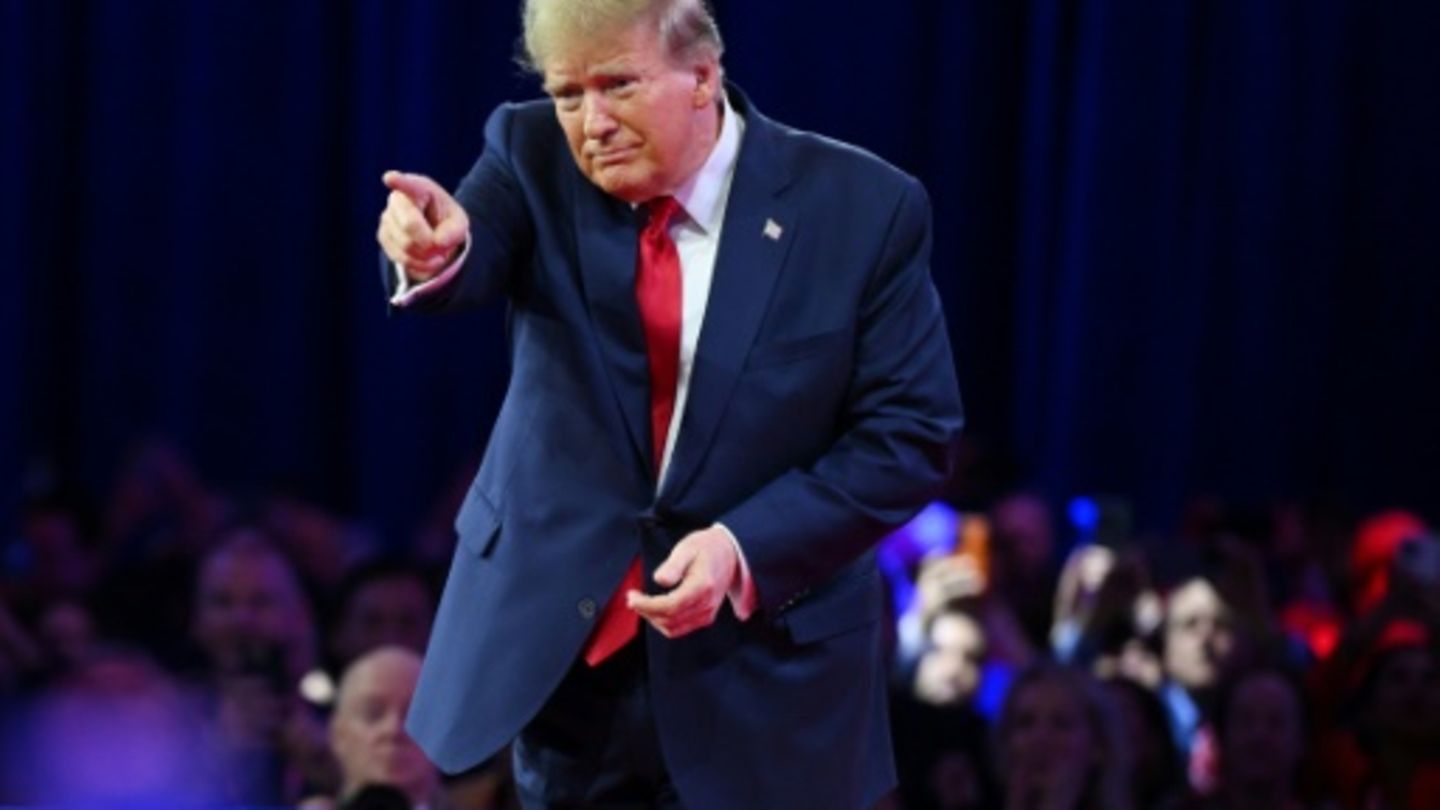Former US President Donald Trump has failed in his attempt to drop two of the criminal charges against him. In the US state of Georgia, a judge on Thursday rejected Trump's request to dismiss the charges against him there for attempting to manipulate the election. In Florida, a federal judge refused to dismiss charges that Trump took classified government documents to his private residence.
Trump is criminally charged in a total of four cases. He is relying on delaying tactics in his legal disputes in order to postpone judgments if possible until after the presidential election in November, in which he is expected to run for the Republicans again.
The charges in Georgia relate to Trump's attempts to subsequently reverse the result in his favor after his election defeat against now-President Joe Biden in the state that was crucial for the outcome of the election. In a phone call with Georgia's election director Brad Raffensperger, the elected president demanded, among other things, that he “find” the 11,780 electoral votes necessary for his victory in the southern state.
In the case, Trump and 14 other defendants are charged with, among other things, conspiracy to forge and make false statements. In the motion now dismissed by Judge Scott McAfee, Trump and the other defendants argued that their actions after the 2020 election were covered by the fundamental right to free speech.
However, McAfee, in his decision quoted by US media, found that even political expressions are “not inaccessible to law enforcement” when it comes to the allegation that these expressions served “criminal activity”.
It is still unclear when the trial against Trump and the other defendants in Georgia could begin. Chief prosecutor Fani Willis has requested a date of August 5th – exactly three months before the presidential election.
In a second case, federal judge Aileen Cannon in Florida rejected Trump's request to drop charges of storing classified documents at his private residence, Mar-a-Lago. Trump's lawyers had argued that taking the documents from the White House was still an official act and therefore a legal procedure.
But Cannon found there was no legal basis to dismiss the allegations before the trial began. However, she left open the possibility that it could be examined during the proceedings whether Trump's actions were covered by a law that regulates the archiving of US presidents' documents.
At the end of his term in office, Trump took the documents from the White House to Mar-a-Lago in January 2021, where, according to the indictment, they were kept unsecured and hidden from the reach of the judiciary. The ex-president is suspected of violating an espionage law that sets strict requirements for the retention of national security documents.
In this case too, the date when the trial could begin is still unclear. Prosecutors have requested a July 8 date.
Trump is also being charged by the federal judiciary for his attempts to subsequently overturn his election defeat against Biden. The fourth criminal indictment filed against the former president accuses him of falsifying business documents to disguise a hush money payment to former porn actress Stormy Daniels before the 2016 election. The trial on these allegations is scheduled to begin on April 15. It will be the first criminal trial of an ex-president in US history.
dja/gt

